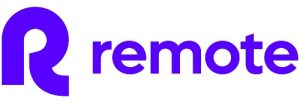Switzerland, with its highly skilled workforce and strong economy, has become an attractive destination for US-based employers seeking top-notch professionals. Deciding whether to partner with an independent contractor or hire employees in Switzerland presents challenges for small businesses, especially given that Switzerland has some of the highest salaries in the world.
For quick reference—if you only need a few specialized workers, then working with a Swiss independent contractor can be more beneficial and cost-effective. However, if you’re planning on hiring en masse and creating a presence in Switzerland, then setting up a business in the country and hiring employees is your best bet.
When hiring employees in Switzerland, consider using an employer of record (EoR). You’ll pay them a fee for the service, but they’ll handle the complex Swiss taxes and compliance with Swiss labor laws. The right service provider can go a long way to keeping your administrative burden low.
Monthly pricing (per employee) | Plan for Contract Employees ($/Month) | Set up Fee | Number of Countries | |
|---|---|---|---|---|
 | $699 | $29 per worker | None | 170+ |
$599** (call for quote) | $20 per worker** (call for quote) | None | 150+ | |
 | Starts at $650 | $2/worker | ✓ | 160+ |
 | Starts at $599 | $49 per worker | None | 90+ |
Starts at $400 | $40 per worker | None | 150+ | |
 | Custom pricing (call for quote) | Included in quote | Custom pricing (call for quote) | 185+ |
 | Custom pricing (call for quote) | Included in quote | Custom pricing (call for quote) | 185+ |
$599 | $29/worker | None | 130+ | |
How to Hire Contractors in Switzerland
If your company only needs a worker or two, partnering with an independent contractor is your best bet. While you’ll have less control over when and how the work gets done—and you run the risk of stiff penalties for misclassification if the worker should really be an employee—this can be a cost-effective way to secure high-quality talent in Switzerland.
Partnering with contractors in Switzerland will follow the same general process as hiring any international independent contractor. Here, we’ll discuss the steps specific to Switzerland.
Step 1: Review Swiss Regulations on Independent Contractors
Compliance with foreign labor laws can be a major hurdle for small businesses, especially if you misclassify your workers. Even innocent mistakes can result in costly fines. To be an independent contractor in Switzerland, a worker must:
- Have control over their work schedule
- Issue invoices before being paid
- Pay full Swiss social contributions
While Swiss labor laws generally favor workers, there is no entitlement to statutory employment rights for independent contractors. This means that they’re not entitled to paid time off or benefits you may offer.
Step 2: Post a Job Ad on Relevant Swiss Job Boards
Creating an effective job advertisement for a contractor is generally the same as when hiring an employee, but there are some things to keep in mind. You must keep the job ad focused on project work rather than daily tasks, emphasizing the independent nature of the contractor’s role.
An effective independent contractor job ad should include:
- Project Overview: Provide a brief introduction to the project, its objectives, and the expected outcomes.
- Scope of Work: Outline the specific tasks and responsibilities the contractor will be expected to undertake throughout the project.
- Qualifications and Skills: List the required skills, expertise, certifications, and any special training or degrees necessary for the project.
- Project Timeline: Specify the project’s length, including any milestones and deadlines that the contractor should be aware of.
- Compensation: Clearly state the payment terms, whether it’s a fixed price, hourly rate, or milestone-based payments.
- Communication and Collaboration: Describe how the contractor will collaborate with the company and the preferred methods of communication (e.g., email, video calls, project management tools).
Expert Tip: It’s beneficial to include some information about your company, such as your mission statement, company core values, and industry presence. This can help attract contractors that align with the company’s culture and objectives.
To reach Swiss independent contractors, US employers can utilize various websites and platforms, including:
- Upwork: A popular freelancing platform that connects businesses with independent professionals worldwide, including Switzerland. Learn more about the platform in our Upwork review.
- Freelancer.com: Another global freelancing marketplace that allows businesses to post projects and receive bids from qualified contractors. Check out our Freelancer.com review to find out if it’s right for you.
- LinkedIn: A professional networking platform where businesses can post job ads and search for suitable independent contractors in Switzerland. Read our LinkedIn review to learn more about its features.
- Swiss-specific job portals: Websites like jobs.ch and jobup.ch cater specifically to the Swiss job market, allowing employers to target local talent effectively.
Once you begin receiving applications, you’ll need to screen candidate resumes and portfolios. Because these workers are independent contractors, some of whom may have their own companies, you may not receive traditional resumes. Many times, you’ll receive portfolios or project details that will help you determine whether the contractor or freelancer is a good fit.
Step 3: Make an Offer Using an Independent Contractor Agreement
When making an offer to a Swiss independent contractor, it’s crucial to use an independent contractor agreement. This legally binding document helps establish the terms and conditions of the working relationship between the US-based small business and the contractor, ensuring that both parties have a clear understanding of their respective roles, responsibilities, and expectations.
An independent contractor agreement is necessary for several reasons:
- Legal Compliance: It ensures compliance with Swiss labor laws and regulations, protecting both the contractor and the client from potential legal disputes and penalties.
- Risk Management: The agreement helps manage risks by outlining the project’s scope, deliverables, and timeline, minimizing the chances of misunderstandings or miscommunications.
- Payment Terms: It specifies the compensation structure, payment schedule, and invoicing process, ensuring that both parties agree on the financial aspects of the project.
- Intellectual Property Rights: The agreement clarifies the ownership of intellectual property, including copyrights, patents, and trademarks, safeguarding the client’s rights to the work produced during the project.
- Confidentiality: The agreement may include confidentiality clauses, protecting sensitive information shared between the contractor and the client.
To ensure a comprehensive and legally sound contract, consider including the following items in the independent contractor agreement:
- Parties Involved: Clearly identify the contractor and the client, including their names, addresses, and contact information.
- Scope of Work: Define the project’s specific tasks, responsibilities, and objectives, as discussed during the quoting and interview process.
- Project Timeline: Outline the project’s duration, including any milestones or deadlines that the contractor must adhere to.
- Compensation: Specify the agreed-upon payment terms, such as a fixed price, hourly rate, or milestone-based payments, along with the payment schedule and invoicing process.
- Termination: Define the circumstances under which the agreement can be terminated, along with any notice requirements and potential penalties for early termination.
- Dispute Resolution: Specify the methods for resolving disputes, such as negotiation, mediation, or arbitration, and the governing law and jurisdiction for any legal proceedings.
- Indemnification and Liability: Clarify each party’s responsibilities concerning indemnification and liability for damages, losses, or claims arising from the project.
Step 4: Complete & Retain the Right Forms
Taxes initially seem like a big headache, but when dealing with a Swiss independent contractor, the Swiss tax liability falls squarely on them. However, if the independent contractor ever comes to the US and does work for your company, the compensation for the work done while in the US will be taxed. That’s why you’ll need to have them complete Form W-8BEN or W-8BEN-E.
These forms must be completed by your Swiss independent contractor and retained by your business. You don’t file these forms with the government—they’re used to determine whether you need to withhold US taxes and, if so, how much.
How to Hire Employees in Switzerland
The process of hiring employees in Switzerland differs significantly from independent contractors due to the distinct nature of each working relationship, besides being slightly different based on the type of employee you’re hiring. It’s also more complex, as the Swiss have a complicated and costly tax and social security system.
Unless you’re looking to open a location in Switzerland, it’s probably best to partner with a couple of independent contractors or consider using an EoR to hire and manage your Swiss employees on your behalf.
Step 1: Review Swiss Labor Laws
We’ve already discussed misclassification above. Now we’re going to look at what labor laws you need to know before hiring a Swiss employee.
There is no national minimum wage in Switzerland. However, many industries and workers are governed by collective bargaining agreements, which often include minimum wage requirements that you’ll need to know. Some cantons in Switzerland also have their own minimum wage requirements.
Tax in Switzerland is a big one. Switzerland has a three-tiered tax system, levying taxes at the federal law, canton level, and municipal level. Income tax for your employees ranges from 1% to 19% federally and is calculated on a progressive basis, as well as the location where your employee lives and works. Some cantons have additional taxes you’ll need to withhold.
There are also employer costs and taxes you’ll need to pay, like retirement and disability insurance, accident insurance, pension fund, mandatory benefits like paid time off, and more. To learn all about how to handle Swiss payroll, review our comprehensive guide.
Step 2: Determine Salary & Understand Compliance Issues
Switzerland has some of the highest salaries in the world. According to the Swiss Federal Statistical Office, for the most recent year data is available, the average monthly salary was CHF 6,665 per month (about $7,400 USD). Depending on the work you need done, the skills required for the job, and the experience you need, you may need to pay even more.
In Switzerland, employment laws fall under the Code of Obligations. Many benefits are also outlined in an employment contract. Some of the important worker protections provided under Swiss law include:
- Termination protections
- Maximum work hours (45 per week)
- Paid time off (at least four weeks per year)
- Discrimination protections
- Family leave (14 weeks for maternity and two weeks for paternity)
Besides paying for mandated benefits, you should also consider expanding your benefits package to include additional benefits, like flexible work hours. These can help attract and retain top talent in Switzerland.
Hiring international employees requires compliance with laws you may not be familiar with and could risk serious fines and penalties. This is why we recommend using an EoR to hire and employ your international workforce. Check out our guide to the best employer of record services for some options.
Step 3: Post the Job Ad
Like a job ad for an independent contractor, a job ad for an employee should clearly state the requirements for the role. Your job ad should also include the hours required, especially if you need someone to work US hours from Switzerland. Being clear about your expectations will help you weed out applicants not looking to work during the hours you require.
It’s also important to note information about your company. What’s your culture? Do you offer flexible working hours? What special benefits do you offer? Answering these questions in your job ad will help applicants determine whether they’re the right fit for your company, a crucial part of weeding out candidates and saving you time.
Posting the job ad is simple. You can use the same sites listed above to help you find employees in Switzerland, plus other major job boards.
Step 4: Review Applications & Conduct Interviews With International Details in Mind
When reviewing Swiss worker applications, there are several factors you need to consider to ensure a smooth and effective hiring process. Have your list of must-haves nearby when reviewing resumes but remember that no candidate will match perfectly to your entire list. Try to narrow down the resumes to a handful that you want to schedule for an interview.
Hiring international employees comes with certain challenges, like time zones. Keep in mind the time difference between the US and Switzerland when scheduling interviews. Your job ad should have been clear about what hours you needed someone to work—but you’ll need to be flexible when setting an interview time.
Opt for video interviews. They not only provide a more personal interaction but also give you an idea of the candidate’s internet capabilities, which is essential for remote collaboration. This is also a much better way to develop rapport with the candidate and get a feel for intangibles.
We always recommend a structured interview process. This lets you ask the same questions of each candidate and will help you evaluate candidates fairly. Given some of the challenges you face with international hiring, it’s important to make some of those questions applicable. Here are a few examples:
- How do you manage time zone differences and ensure timely communication with colleagues or clients?
- What strategies do you use to prioritize tasks and maintain productivity when working remotely?
- Can you provide an example of a project where you successfully collaborated with team members in different locations and time zones? What challenges did you encounter, and how did you overcome them?
- Are you comfortable using video conferencing tools and other remote collaboration technologies? Can you describe your experience with these tools?
- Given the time difference, are there any limitations or preferences regarding your working hours and flexibility for meetings? How do you handle scheduling conflicts?
Step 5: Check References
After you’ve completed your interviews, you should be able to narrow down your candidate preference to just one or two. At this point, it’s a good idea to speak with past supervisors to get an idea of how the employee works, their skills, and what it’s like to manage this person.
While we generally recommend all reference checks should be done via video conference or phone call, sometimes that’s not always possible given the time difference. In this case, it may be acceptable to communicate with a reference via email.
Make sure the candidate gives you at least two supervisory references. Ask questions related to the employee’s work ethic and skills. Here are some examples:
- Can you briefly describe your working relationship with the candidate and the context in which you collaborated?
- What were the candidate’s primary responsibilities and key strengths in their role? Were there any areas where they needed improvement or support?
- How did the candidate handle challenging situations or conflicts in the workplace? Can you provide an example?
- In terms of communication and collaboration, how would you rate the candidate’s ability to work effectively with team members, clients, or other stakeholders?
- Was the candidate able to adapt to changing priorities or deadlines, and how did they manage their time and workload?
- How would you describe the candidate’s ability to work independently and take initiative in their role?
- Would you rehire the candidate if given the opportunity? Why or why not?
Step 6: Make a Job Offer
Under Swiss law, individual employment contracts are required unless the industry or individual is already covered under a collective bargaining agreement. The employment contract must be signed by both parties and include at least the following information:
- The employee’s name
- The employer’s name
- The start date of the employment relationship
- The employee’s job duties
- Salary and pay frequency
- Weekly working hours
Fixed-term contracts are also allowed. If this is the case, you’ll need to clearly indicate the date the contract ends. It’s important to note here that some cantons have special terms for professional workers that establish minimum requirements for the employer. You can modify these terms, but only in favor of the employee.
Before putting all these terms together in the employment contract, however, we recommend making a soft offer to the candidate by calling them or hopping on a video call. This gives you the ability to gauge the candidate’s excitement and hammer out any final details, like start date and salary.
What to Consider Before Hiring in Switzerland
Before hiring an employee or partnering with an independent contractor in Switzerland, it’s important to consider several factors. You’ll want to ensure you’re compliant with Swiss law, while also ensuring you get the right candidate for the role.
Common Types of Work Outsourced to Switzerland
Switzerland is known for its highly skilled workforce, strong infrastructure, and expertise in various industries. Even though Switzerland is often more expensive, some US-based companies still outsource roles there. Some common jobs outsourced to Switzerland include:
- IT services and software development
- Financial services and banking
- Pharmaceutical research and development
- Engineering and manufacturing
- Business consulting and management
Compliance Risks
We discussed misclassification, but you’ll also need to ensure you’re paying a minimum wage, if applicable, and not having employees work more than the maximum number of hours allowed in Switzerland. You’ll need to set up administrative processes to handle paid time off, family leave, and other mandatory benefits. If you’re hiring employees, you’ll also need to understand and comply with Switzerland’s complex three-tiered tax system.
Failing to adhere to Swiss labor laws, which are more employee-centric than US labor laws, can lead to fines and legal problems. It could also lead to your business being banned from operating within Switzerland.
Cultural Differences & Time Zones
The US and Swiss cultures are fairly similar. However, while many Swiss people speak conversational English, they may also speak German and French. Be mindful of these differences to provide an inclusive and diverse workplace.
Switzerland only has one time zone and it’s six hours ahead of the US east coast. If you’re going to have Swiss workers work US hours, make sure you’re clear about this from the start.
Hiring in Switzerland—Frequently Asked Questions (FAQs)
Yes—in fact, it’s the best way to partner with an independent contractor or employee. If you intend to use a Swiss recruiting agency or another way of hiring, you or the agency you contract with may need to get a special license or certification to operate.
Doing payroll in Switzerland is complex. That’s why we’ve created an ultimate guide to Swiss payroll to help you navigate through paying your employees.
Yes; however, if your Swiss employee conducts even an hour of work while in the US, they and you may owe US taxes. You may also need to acquire a special work visa if your employee intends to stay and work in the US for a longer time.
Bottom Line
Hiring Swiss-based employees or independent contractors can bring immense value to US small businesses, offering access to a highly skilled workforce, diverse perspectives, and industry expertise. By addressing the unique challenges of cross-border employment, such as compliance with Swiss labor laws, managing time zone differences, and bridging cultural gaps, US business owners can successfully expand their talent pool and tap into new markets. As you embark on this journey, be proactive in seeking answers to crucial questions and leveraging available resources to ensure a smooth process and foster a thriving global team.